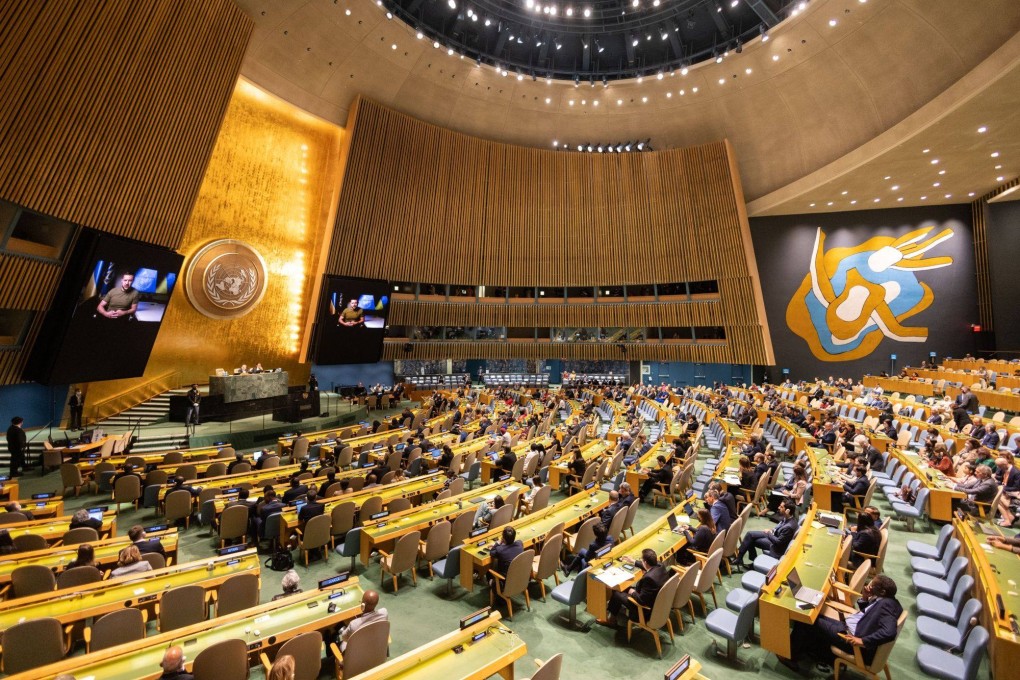Advertisement
As I see it | Calls for UN Security Council reform unlikely due to political gridlock during General Assembly
- The US, China, Britain, France and Russia are permanent veto-wielding members, while 10 other nations rotate for two-year terms
- Observers suggest council reform will benefit from new blood given frustrations over Moscow blocking the council from holding it to account over Ukraine
Reading Time:2 minutes
Why you can trust SCMP

On the balance, it’s something to be celebrated: after three years of the Covid-19 pandemic, the United Nations General Assembly is once again being held entirely in-person.
The New York Times reported that drivers are avoiding Midtown Manhattan so they don’t get caught up in the infamous United Nations gridlock – which will last until Monday.
For the rest of us watching from afar, we’ll be trying hard not to devote too much time contemplating the all-too-familiar banalities that accompany the General Assembly.
Advertisement
Among these are calls for countries to move quickly to reform the Security Council, the UN’s 15-nation elite grouping that makes decisions on sanctions, war and peace.
The United States, China, Britain, France and Russia – deemed victors of World War II – are permanent veto-wielding members, while 10 other nations rotate for two-year terms.
Advertisement
Advertisement
Select Voice
Choose your listening speed
Get through articles 2x faster
1.25x
250 WPM
Slow
Average
Fast
1.25x
